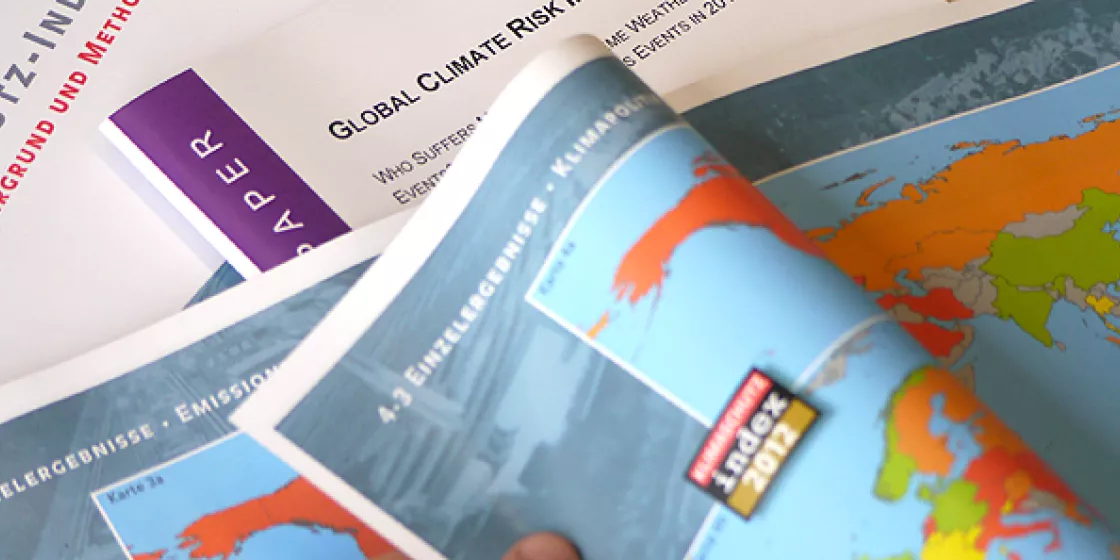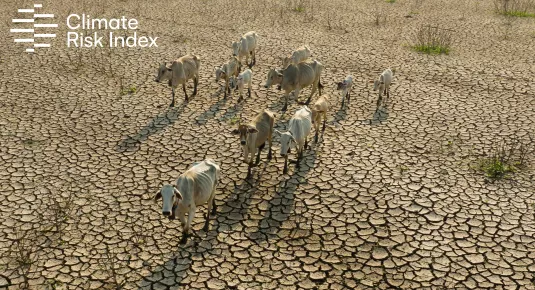
Indices
Every year the Climate Change Performance Index evaluates and compares the climate protection performance of 57 industrialised and developing countries. The Climate Change Risk Index on the other hand analyses to what extent countries have been affected by the impacts of weather-related loss events like storms, foods heat and alike.








